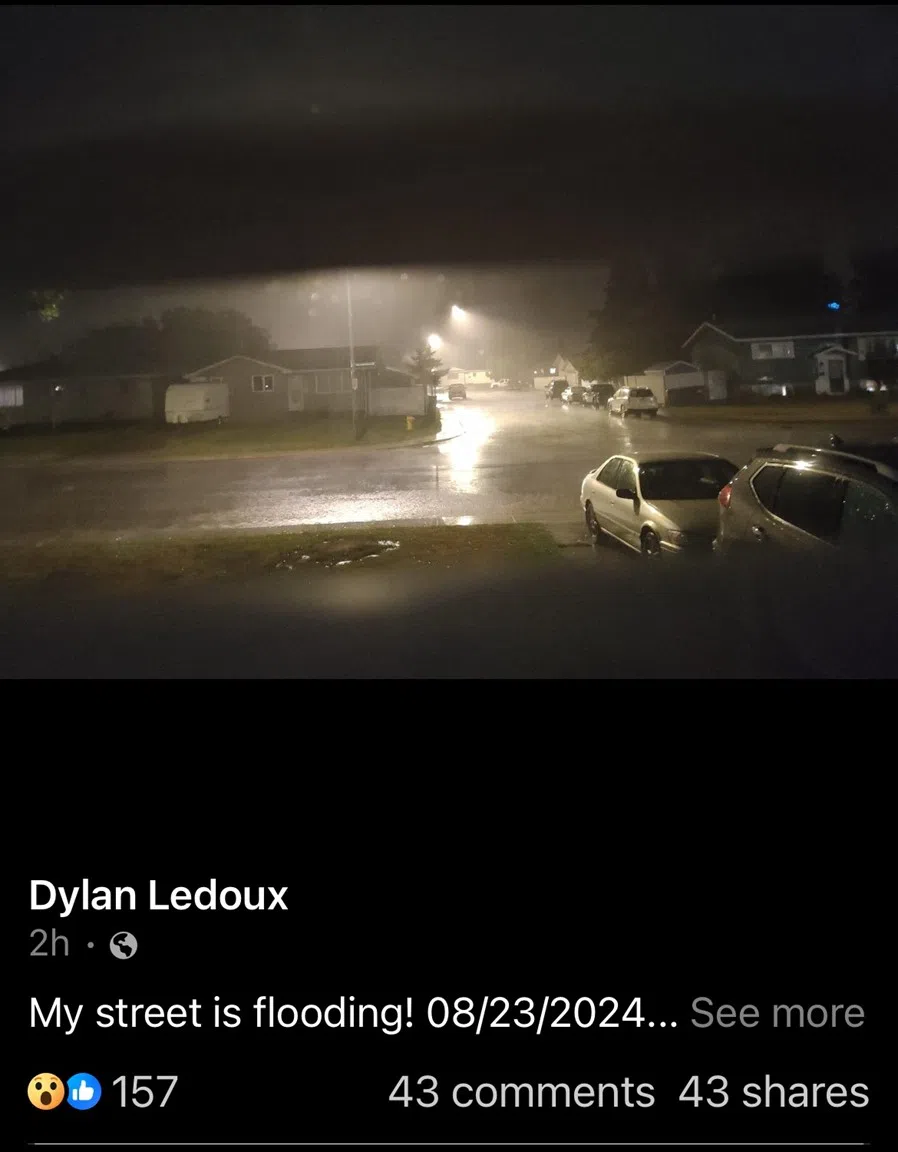Overnight storm brings flooding to areas of Saskatoon
Saskatoon Police say road restrictions are currently in place due to flooding caused by the intense rainfall overnight. The flooding is affecting both north and southbound lanes of Idylwyld Drive at the Circle Drive overpass. Members of the public are asked to avoid the area while crews work to remove several stalled vehicles.

A string of thunderstorms stretching from Alberta through to Saskatoon brought a trifecta of strong winds, hail, and heavy rain across Saskatchewan last night, much like storms which swept through the province on June 23rd. In Saskatoon and surrounding areas including Dalmeny, Martensville and Warman, it didn’t appear to be one round of storm activity but a second storm closer to midnight. The intense storm activity moved through North Battleford to the west, Moose Jaw, Regina and communities south as well as in the southeast with social media reports showing much the same in terms of severe weather.
Environment Canada Meteorologist Brad Vrolijk says in a few spots, winds gusted up to 90 kilometres an hour, and nickel to quarter-sized hail fell in pockets throughout the region. When it comes to rainfall, Saskatoon got the brunt of it with 50-75 mm in several spots. He says that amount of rain is enough to overwhelm city drainage systems and cause street flooding.
“For the Saskatoon area, you’ve probably seen the worst of what you’ll see. There is a chance of some thunderstorms (on Saturday) especially heading into the evening and overnight period, but it’s very unlikely they’ll be severe.”
Areas at risk of additional storms tonight include the region of Assiniboia, Regina, and Yorkton. Vrolijk says overnight, 61,600 lightning bolts struck in the province.
Severe storms are not necessarily tornadoes, but it has been a busy summer for the Northern Tornadoes Project which works with Environment and Climate Change Canada. Their team has investigated 129 events so far and confirmed 76 tornadoes in Canada with almost a quarter of them in Saskatchewan.





























































